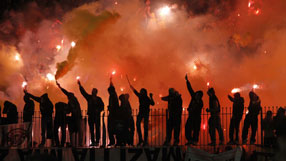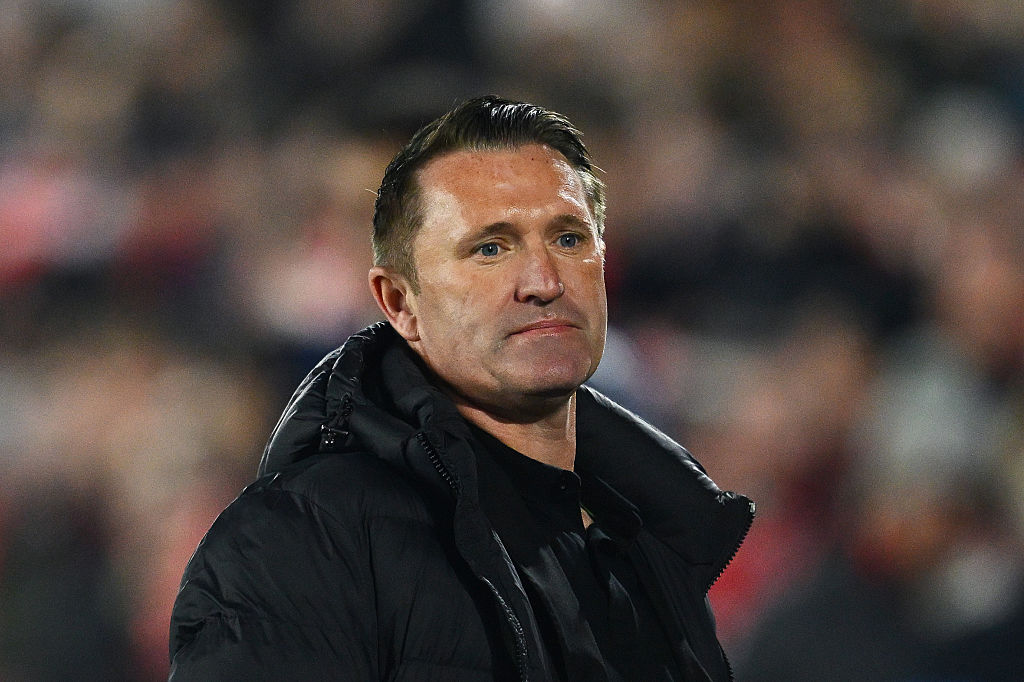
The best features, fun and footballing quizzes, straight to your inbox every week.
You are now subscribed
Your newsletter sign-up was successful
Want to add more newsletters?

Five times a week
FourFourTwo Daily
Fantastic football content straight to your inbox! From the latest transfer news, quizzes, videos, features and interviews with the biggest names in the game, plus lots more.

Once a week
...And it’s LIVE!
Sign up to our FREE live football newsletter, tracking all of the biggest games available to watch on the device of your choice. Never miss a kick-off!
Join the club
Get full access to premium articles, exclusive features and a growing list of member rewards.
The multi-billion euro EU-IMF rescue package announced last week has restored a measure of optimism, but the nation's top sporting figures are expecting hard times, with less popular sports expected to be hit hardest by budget cuts.
Greece has embarked on the huge task of cutting its deficit from nearly 14 percent of GDP to 3 percent by 2014 to meet the conditions of the EU/IMF aid.
"From what has been said by the government, the budgets of all federations will be reduced," Spyros Kapralos, the president of the Hellenic Olympic Committee (HOC), told Reuters.
"The biggest cuts will be in low category sports. From what I know, the amounts will be drastically reduced."
Kapralos is fronting a number of HOC projects aimed at attracting private sector sponsorships, such as the opening of the iconic Panathinean Marble stadium to tourists.
"The state also had difficulties last year, so that is why it is even more important to focus on programmes in attracting investment from the private sector," added Kapralos.
"Greek sport is used to state funding and this must change. People have to realise that attracting money from the private sector is the way forward," he added.
The best features, fun and footballing quizzes, straight to your inbox every week.
"It's more difficult to raise money from sponsorships in the current climate obviously so it's about being smart."
FEELING THE EFFECTS
The effects of the crisis are already being felt by Greece's two most popular sports, football and basketball.
Attendances in the nation's top football division have slowed dramatically compared with previous seasons, with an increase of just 1.06% for the current season compared to increases of 17.2% and 33.52% in the two previous campaigns.
"The crisis is certainly impacting Greek football," Super League executive director Patrick Komninos told Reuters.
"We are working hard, though, to ensure all clubs share in revenues sponsorship deals and broadcasting rights deals so clubs have a steady cash flow throughout the season."
In March, the Greek government angered football bosses by suspending funding from state-owned betting company OPAP - a contract worth more than 50 million euro over three years - until crowd violence is stamped out.
"One cannot be sure that violence will be eliminated by cutting revenues," Komninos commented on the controversial move. "Financial sanctions should only be imposed on the clubs that have caused violence instead of blanketing all clubs."
It has proved a widely unpopular move, and one which will put an extra strain on budgets should it continue, according to Kostas Piladakis, the president of Super League club Larissa.
"I don't believe that this decision helps to solve the problem of violence one little bit," he told Reuters.
In basketball, one merger in the top flight has already taken place this season due to financial problems, with Olympia Larissa joining forces with AEL 1964 last December.
 Join The Club
Join The Club










